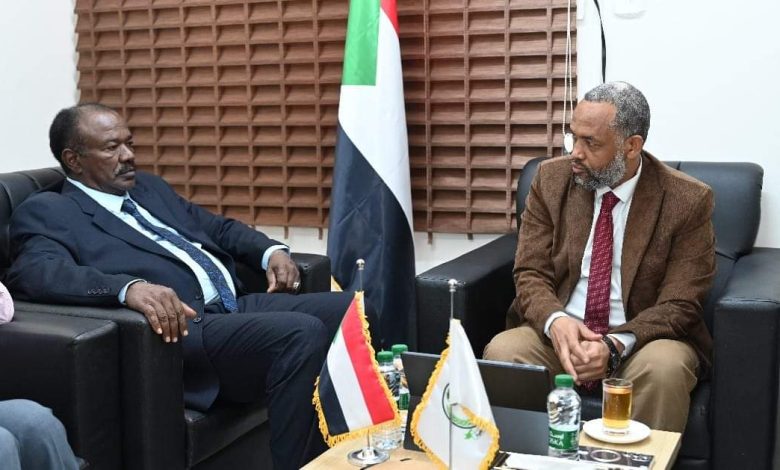Ministers of Agriculture and Health Refute Report of Famine in Sudan

Sudan Events – Rehab Abdullah
Sudanese Minister of Agriculture, Dr. Abu Bakr Al-Bushra, denied the existence of famine in Sudan, revealing the cultivated areas and grains in the country, particularly corn and millet.
He explained that the report referred to by some United Nations agencies lacks some information and statistics, particularly since it did not include all the states of Sudan due to the war.
The Federal Ministries of Health and Agriculture announced an agreement to facilitate and accelerate procedures, registration and proactive arrangements for sending pesticide papers from the concerned countries and following up on them until the process of clearing them is completed faster and ensuring their safety, particularly pesticides used to combat autumn epidemics, pointing to the importance of making the necessary arrangements to combat the density of mosquito and fly breeding.
The joint meeting of the Federal Minister of Health, Dr. Haitham Mohamed Ibrahim, with the Federal Minister of Agriculture, Dr. Abu Bakr Al-Bishri, concluded in his office in quarantine, in the presence of the Secretary-General of the Medicines and Poisons Council, Dr. Ali Babiker, and Dr. Nu’ha Saleh, Director of Nutrition, spoke about the food situation in Sudan, in addition to pesticide imports and the procedures they took to combat disease vectors, to the need to hold a joint press conference to clarify the facts and detailed information and the importance of delivering health, food and nutrition services to citizens besieged in those areas.
He stressed the need to lift the siege imposed on citizens by the Rapid Support RSF Militia, and open some crossings, such as Tina, South Sudan and airports, to deliver all food needs and allow health and food convoys in all areas under their control.
And to ensure the continuation of the work of the Ministry of Health, in partnership with organizations, in treating cases of mild and severe malnutrition in hospitals and nutrition centers, in addition to activating health awareness and education programs and breastfeeding.
The Federal Minister of Health, Dr. Haitham Mohamed Ibrahim, said that the meeting discussed the food situation in Sudan, from the perspective of the Ministries of Health and Agriculture.
The agricultural situation was presented by the Minister of Agriculture, who confirmed that there is no famine in Sudan based on the standards, revealing the cultivated areas and grains in the country, particularly corn and millet.
He explained that the report referred to by some UN agencies lacks some information and statistics, especially since it did not include all the states of Sudan due to the war.
He affirmed that the criteria on which the report was based are not correct, calling for facilitating the delivery of seeds and grains and delivering food to citizens through the crossings specified by the Sudanese government.
He continued: The Rapid Support Forces RSF adopted a policy of starving citizens and looting food supply shipments.
Haitham revealed that the rates of malnutrition among children and mothers were high before the war.
He stated that the ministry conducted some studies and interventions, but the outbreak of the war, the entry of the Rapid Support Forces RSF and its invasion of new areas and states, led to the existence of semi-closed areas in the states of Darfur and Kordofan and some areas in Khartoum and Gezira states, which increases the rates of malnutrition.
The minister provided an explanation of reasons other than the lack of food that increase the rates of malnutrition, such as childhood diseases, diarrhea, failure to take sufficient vaccinations, repeated displacement, as well as educating mothers about breastfeeding and food culture.



